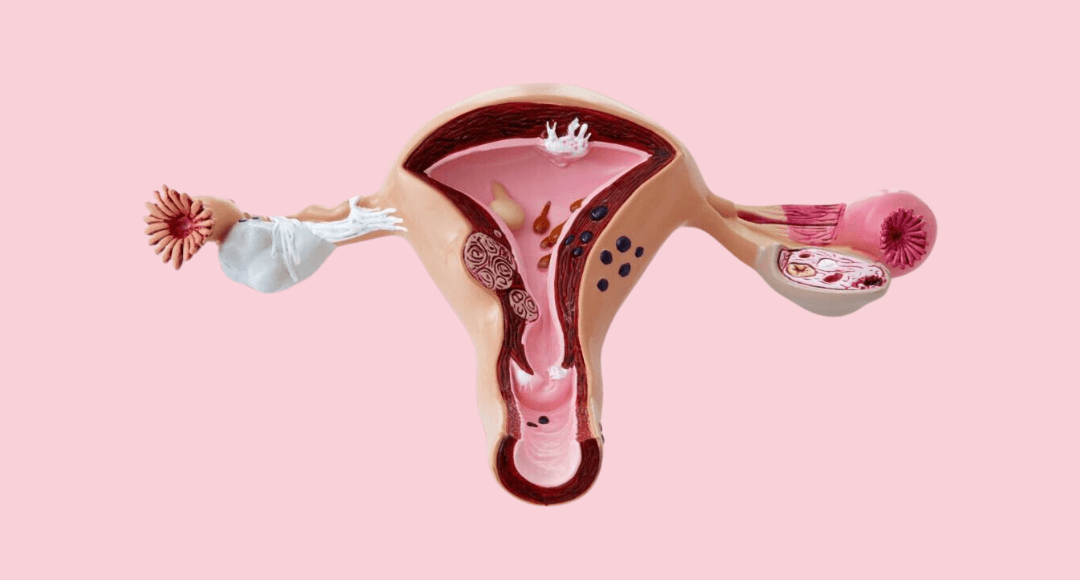Irregular menstrual cycles are common and can have various causes, such as fluctuating hormones, medical conditions, or lifestyle factors. Fortunately, there are several ways to improve your cycle and thus manage and regulate it.
Causes of an irregular cycle
Hormonal fluctuations
Hormones like estrogen and progesterone play a key role in the menstrual cycle. Fluctuations in these hormones can occur due to puberty, menopause, stress, or weight changes .

Irregular menstrual cycles are common in teenagers, especially in the first few years after their period begins. This is usually due to hormones still developing and stabilizing. The hormones estrogen and progesterone, which regulate the menstrual cycle, can fluctuate significantly during this time. It can sometimes take several years for the cycle to become regular.
During this time, it's important to be patient and understand that menstrual irregularities are normal for teenagers . Keeping a menstrual diary can be helpful in recognizing patterns. There are also several apps for this that make it easy to track everything . If you notice that your periods are irregular for a longer period, contact your doctor. They can advise you on the best course of action or refer you to a gynecologist.
Medical conditions
PCOS (polycystic ovary syndrome) : This causes hormonal imbalances and can lead to irregular or absent ovulation. PCOS is a hormonal condition that can affect women during their reproductive years. It is characterized by the presence of multiple cysts on the ovaries, elevated levels of male hormones (androgens), and irregular periods.
Endometriosis : This can cause painful and irregular periods. Endometriosis is a condition in which tissue similar to the uterine lining grows outside the uterus. This tissue can attach to the ovaries, fallopian tubes, pelvis, and sometimes even outside the pelvic area.
Fibroids and polyps : Fibroids are benign growths that develop in the muscle layer of the uterus. Polyps are small, benign growths that develop on the inner lining of the uterine wall. They can vary in size and can occur singly or multiplely.
Contraception and medication

Lifestyle factors
Stress, intense exercise, and changes in diet or weight can all affect your menstrual cycle. Stress can disrupt the balance of hormones like cortisol and adrenaline, which affects the hormones that regulate menstruation.
Intense exercise can lead to low body fat percentages, which reduces estrogen production and can suppress ovulation. Drastic dietary changes or weight loss can cause hormonal imbalances, resulting in irregular or missed periods. Similarly, weight gain can lead to excess estrogen, which can also disrupt menstrual regularity.
What can help to gain more control?
While an irregular cycle can be annoying at times, there are ways to manage it and actions you can take to see improvements.
Hormone therapy
Hormone therapy isn't suitable for everyone. It's also not recommended for teenagers with irregular cycles. This is often because teenagers' bodies are still adjusting to the hormones, and it's not advisable to start hormone therapy right away.
- The combination pill helps to regulate the cycle by providing constant hormone levels.
- Progesterone therapy can help balance estrogen and progesterone levels by adding extra progesterone, which regulates the menstrual cycle. This can be done through pills, creams, or injections, depending on your needs.
Lifestyle adjustments
Stress management : Techniques such as meditation, yoga, and breathing exercises can help reduce stress. 
Healthy diet and exercise : Regular exercise and a balanced diet can support hormonal balance. The right nutrition can help restore your cycle's balance. In collaboration with Marlon Haandrikman , we've created four recipes tailored to every phase of your cycle.
If you have further questions about nutrition and your cycle, it's worth contacting an orthomolecular therapist. An orthomolecular therapist focuses on optimizing health by adjusting your diet and using nutritional supplements to achieve optimal balance in the body.
Adequate rest : Get enough sleep and avoid excessive stress. Sleep and rest are crucial for your menstrual cycle because they help regulate hormones like cortisol and melatonin, which indirectly influence the production of reproductive hormones.
Chronic sleep deprivation can lead to hormonal imbalances, which can disrupt the regularity of your cycle. On average, you should sleep 7-9 hours per night to support your hormonal health and promote a regular menstrual cycle.
Natural remedies
Herbal therapy : Herbs like vitex (chasteberry) can help regulate hormones. Vitex works by influencing the pituitary gland, which regulates the production of several hormones, including prolactin. It can improve the balance between estrogen and progesterone, which helps normalize the menstrual cycle, reduce PMS symptoms, and promote regular ovulation.
Supplements : Omega-3 fatty acids and vitamin D can also contribute to a healthier cycle. Omega-3 fatty acids have anti-inflammatory properties and can help reduce menstrual pain and regulate hormones. Vitamin D plays a role in the production of sex hormones and can have a positive effect on hormonal balance, which is essential for a regular cycle. Furthermore, a vitamin D deficiency can be associated with menstrual problems, making supplementation important.
Medical supervision 
If problems persist, it's important to seek medical attention. A doctor can determine the underlying cause and recommend personalized treatment. This could include your general practitioner or gynecologist.
An irregular menstrual cycle can have many different causes, but fortunately, there are numerous ways to manage it and regulate your cycle. Through medical treatments, lifestyle changes, or natural remedies, you can work towards a regular and predictable cycle.
Please note that we are not medical specialists in hormones, the cycle, or any associated conditions. If you suspect you have any of the above-mentioned medical conditions, please contact your doctor.

















